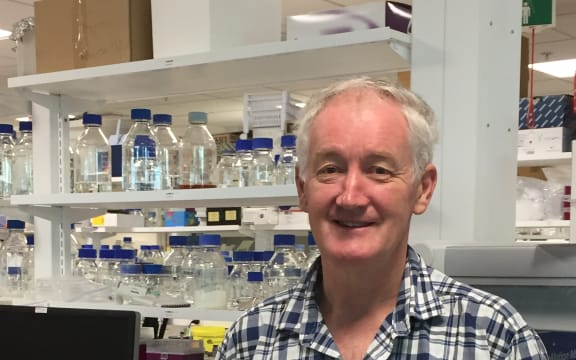File image.
Photo: Phil Smith
A New Zealand geneticist says his research into the minds of sheep may hold the key to curing Alzheimer’s disease.
Auckland University’s Centre for Brain Research received more than $300,000 of funding from the US-based Cure Alzheimer’s Fund earlier this year.
Professor of genetics Russell Snell said the funding would help expand his research focusing on the development of early-onset Alzheimer’s disease in genetically modified sheep.
The goal was to improve the drug pre-screening process for Alzheimer’s disease, Snell said.
“By far and away the most value these animals will have is the pre-clinical testing of potential treatments, to throw away the ones that won’t work, [and] to refine the list to the ones that do, so that they can then go on into human clinical trials.”
Sheep served as excellent models for Alzheimer’s disease research due to their longer life span, complex brain structure, and genetic similarity to humans, Snell said.

University of Auckland geneticist Dr Russell Snell.
Photo: Supplied
Many drugs that performed well in rodents failed in human clinical trials and those trials could cost upwards of a billion dollars to run, he said.
His work would be a game-changer for Alzheimer’s disease research globally, Snell said.
“Our country’s size means we are always close to the people we are working to provide real hope to. We look at things differently here; we ask, ‘What can we bring that’s unique?’
“This work is truly unique. Our group has a vision for dementia, that it is possible to fix it.”
Centre for Brain Research director and research collaborator Sir Richard Faull said the Cure Alzheimer’s Fund recognised the importance of their work.
“Our research work has not only a pioneering scientific value to it; it critically also has a human life value. This funding recognises that in the most perfect way.”





















Discussion about this post